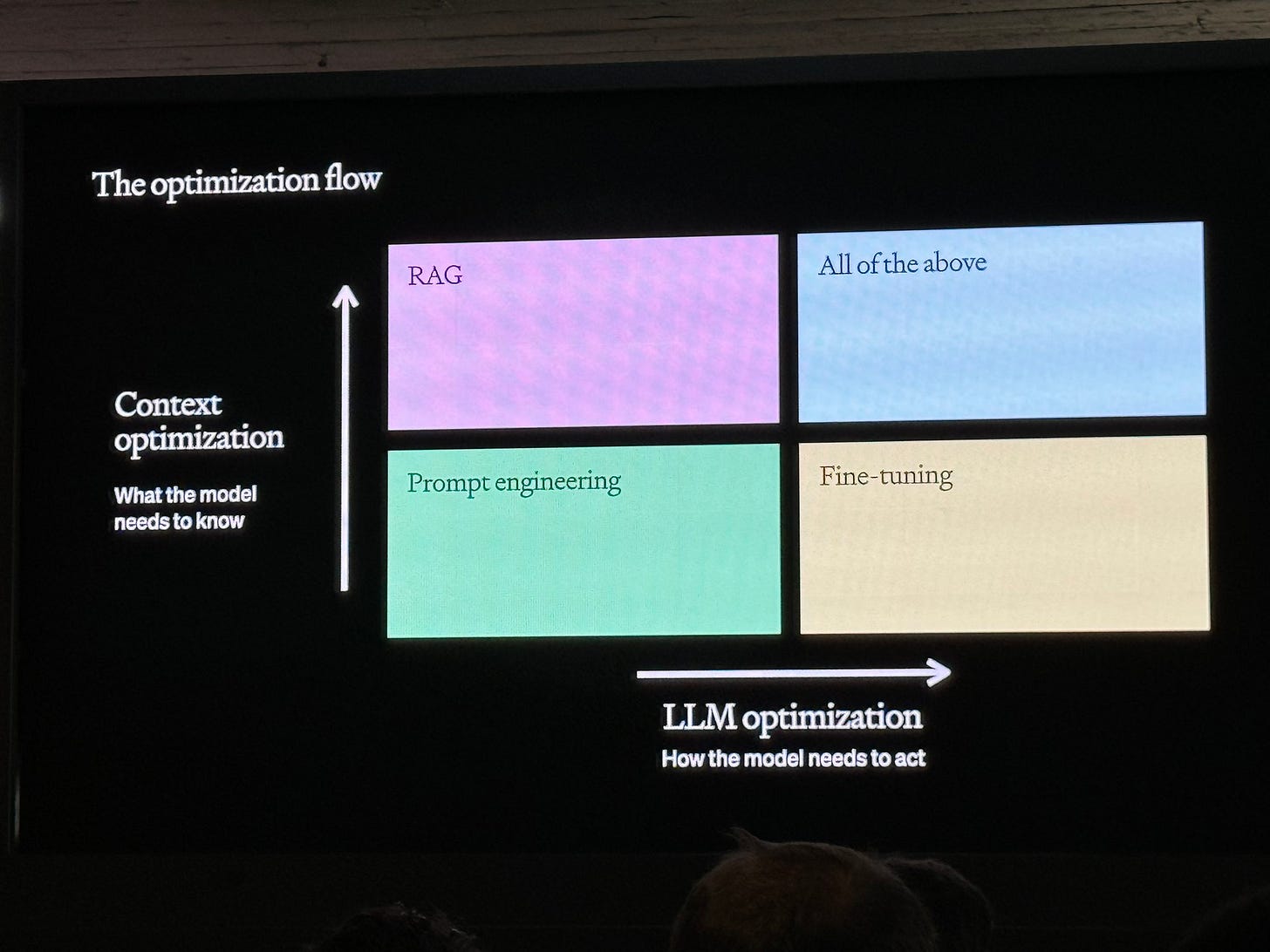Reflections on OpenAI Dev Day
Back in June, I distilled my thoughts on Large Language Models (LLMs) and Retrieval-Augmented Generation (RAG). For additional context, my notes are available here:
Random Note on June 29, 2023
The current prevailing approach to equip Large Language Models (LLMs) with Retrieval Augmented Generation (RAG) capability involves the use of embeddings connected to a vector store. However, the approximation of these embeddings may not be directly relevant to the actual needs of the user.
At the OpenAI Dev Day, captured in vibrant detail by Ben Parr's photography, AI's prowess was on full display. The technology's proficiency in ranking, classification (with an impressive 85% capability), prompt engineering, tool usage, and query expansion (achieving a remarkable 98%) was evident. These statistics underline the substantial benefits that even a basic integration with OpenAI's technologies can bring.
[Edits Nov 9: I misread this information. It is a sharing from Scale.ai at the OpenAI Dev Day. They combine multiple technologies to achieve a remarkable 98% accuracy. No, it is not the out-of-the-box accuracy of the new assistant service.]
The event also showcased the speed and ease with which AI Engineers can now implement services. An example that stands out is swyx's demonstration of "Chat to YouTube" executed in a mere 5 minutes.
This leads to the question: Is OpenAI encroaching on developers' turf?
OpenAI's strategic advancements indicate a pivot in the developer ecosystem. For example, LangChain has announced OpenGPTs just after the OpenAI keynote speech.
In a competitive sphere where key industry players like Microsoft and Meta AI are forming joint ventures, OpenAI has felt the pressure to keep pace, particularly as competitors advance in GPU capabilities and develop their own LLMs and Large Multimodal Models (LMMs). The competition now hinges on delivering an API that is not just technically superior, but also faster and more cost-effective.
There's been much speculation around OpenAI's "Arrakis" initiative, initiated last September and progressed into training in the following spring. Rumors of its potential discontinuation surfaced in October, as mentioned in an article by ‘The Decoder’. If true, this could illuminate a strategic shift by OpenAI, possibly indicating a Plan B focused on market expansion and leveraging network effects.
The implication for AI startups is profound. Could this lead to a significant thinning of the competitive herd? I came across the AI Graveyard today, and it reminded me that while outsiders may see the spectacle, insiders look for the strategy.
The AI assistant travel app demo in OpenAI's DevDay keynote is really impressive. What seemed impossible to create before is now easily achievable through the new Assistant API. My personal toolkits, which include Gamma, Notion AI, and Readwise's Ghostreader, along with the innovations from my peers in the startup community, is testament to the widespread benefits of such AI integrations — whether used directly or embedded within our own services. As Yasser Elsaid of Chatbase aptly puts it, “OpenAI gives startups 1000+ possibilities”.
For those embarking on AI ventures, my enduring advice is to specialize deeply, address genuine issues, and exceed mere surface-level solutions. For business leaders seeking deeper insights, I recommend revisiting the Generative AI workshop I conducted with 500 Global, delivered in Mandarin.




